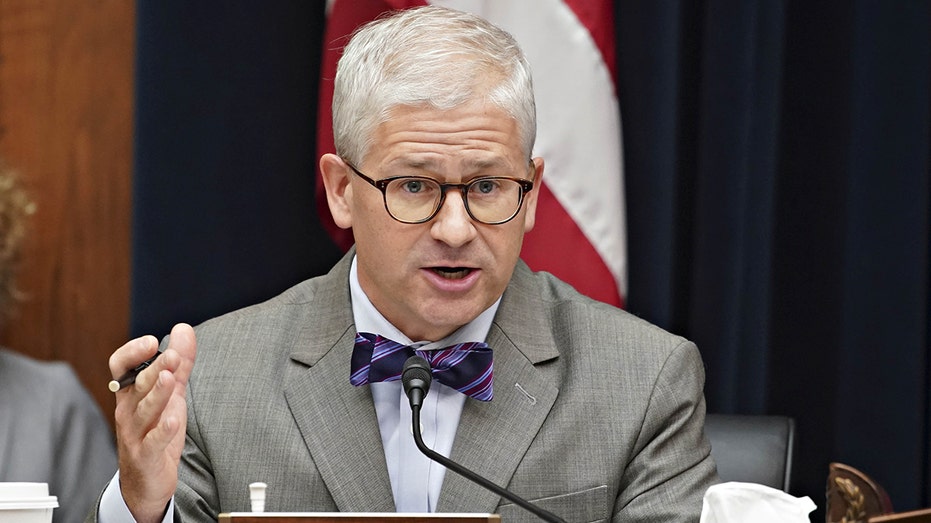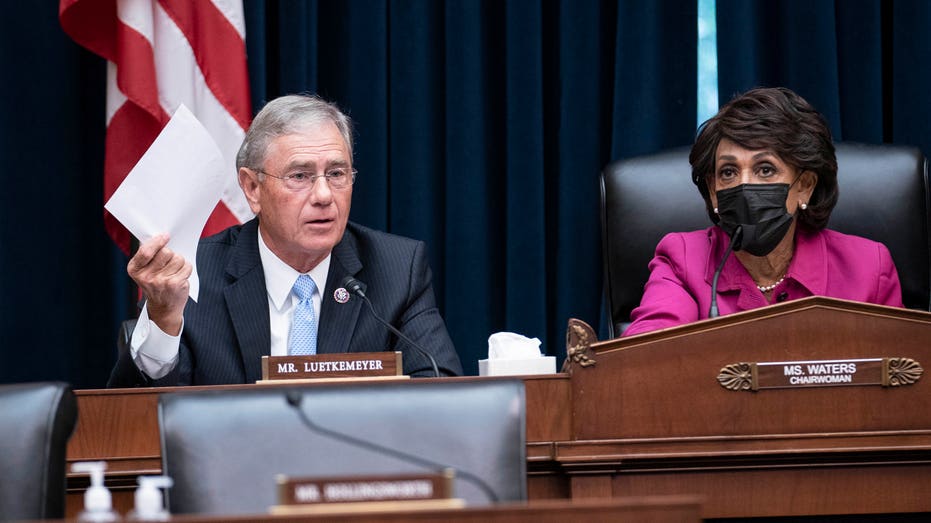GOP lawmakers call for hearing on Dems’ proposed IRS reporting requirement
GOP lawmakers are demanding answers on controversial proposed changes to IRS policies
FIRST ON FOX: Top officials in the House Financial Services Committee on Wednesday called for a hearing to discuss Democratic proposals to tighten IRS regulations in an attempt to prevent tax evasion.
Ranking Member Rep. Patrick McHenry, R-N.C., and Rep. Blaine Luetkemeyer, R-Mo., ranking member on the Subcommittee on Consumer Protection and Financial Institutions, haven taken issue with potential changes that could impact American privacy.
WHOSE TAXES ARE GOING UP? WHITE HOUSE CONSIDERING 4 WAYS TO PAY FOR SPENDING PACKAGE
Democrats in Congress and the White House have backed a proposal that would require banks to report any transaction that exceeds $10,000.
The move would require financial institutions to hand over customer account information to the IRS so that the tax collection agency could monitor tax payments on all major transactions.
The proposal would reportedly ensure that some $160 billion in lost tax revenue is accounted for each year, but some Republicans on the Hill have flagged concerns.

Rep. Patrick McHenry, R-N.C., attends the House Financial Services Committee hearing on Capitol Hill in Washington, D.C., Sept. 30, 2021. (Al Drago/Pool via REUTERS) (Reuters)
In a letter to committee Chair Rep. Maxine Waters, D-Calif., McHenry and Luetkemeyer outlined a number of issues they wanted answers to and said failure to hold a hearing would leave lawmakers and their constituents "in the dark."
The duo want to know what steps the IRS will take to protect consumer information and what additional costs financial institutions can expect to bear from policy changes.
The proposal has been floated as a way to pay for President Biden’s multibillion-dollar infrastructure package that Democrats have been scrambling to push through.
The president has vowed taxes will not go up for anyone who makes less than $400,000 a year – which means financing the two-bill package will require some tax reform.
STATE AGS WARN OF CHALLENGE IF BIDEN BANK DATA COLLECTION PASSES
The administration has proposed implementing a 15% minimum corporate tax and a global tax to prevent companies from relying on offshore tax havens.
Closing Medicare tax loopholes for hedge funds and private equity managers has been floated as well, but the most controversial proposal has been in relying on the IRS to monitor personal transactions.

The U.S. could run out of room to keep paying the government’s bills some time during Congress’s August recess unless lawmakers raise or suspend the federal borrowing limit before then, Treasury Secretary Janet Yellen said. (Shawn Thew/Pool via REUTE (Shawn Thew/Pool / Reuters Photos)
Democratic lawmakers originally proposed requiring financial institutions to report any transaction of $600 or more.
However, earlier this month Democratic Sens. Ron Wyden of Oregon and Elizabeth Warren of Massachusetts proposed raising the transaction threshold to $10,000.
"The administration has signaled the $600 proposal would raise $460 billion in revenue, only 6.5 percent of the $7 trillion tax gap reported to the Treasury," McHenry and Luetkemeyer noted. "How did they come to this number? What would the revenue look like under the new proposal from Senators Wyden and Warren?"
CLICK HERE TO GET THE FOX NEWS APP
The GOP lawmakers voiced frustration that they have yet to see legislation that would include proposals to change the federal tax system and noted there are already two bills sitting in the House that would bar such changes.

Rep. Blaine Luetkemeyer, R-Mo., questions Treasury Secretary Janet Yellen and Federal Reserve Chairman Jerome Powell at a House Financial Services Committee hearing on oversight of the Treasury Department and Federal Reserve coronavirus pandemic resp (Getty Images)
"Madam Chair, our constituents demand and deserve to understand the implications of significant policy proposals before they are passed by Congress and enacted into law," they concluded.





















